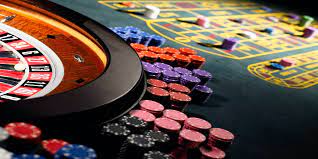Betting has been an intrinsic part of human culture for centuries, بهترین سایت های شرط بندی خارجی evolving from simple wagers in ancient societies to the sophisticated digital platforms of today. This article explores the fascinating journey of betting, tracing its roots, its transformation through the ages, and its current trends.
Ancient Beginnings
Betting can be traced back to ancient civilizations where it was deeply intertwined with religious rituals and entertainment. The Greeks and Romans, for instance, placed bets on athletic competitions, gladiatorial games, and chariot races. The Greeks are credited with formalizing the concept of betting through the establishment of official gambling rules, which were often intertwined with their religious practices.
In ancient China, betting also had a significant presence. Historical records suggest that early forms of gambling were present as far back as the Shang Dynasty (16th–11th centuries BCE). Betting on games and contests was a common pastime, with the earliest known lottery-like game, Keno, originating from this era.
The Middle Ages and Renaissance
As societies evolved, so did their approach to betting. During the Middle Ages, gambling was often associated with fairs and festivals. Games of chance like dice and card games became popular, and betting on these games became a common leisure activity.
The Renaissance brought a surge in the sophistication of betting activities. The introduction of printed cards in the 15th century revolutionized card games and subsequently betting on these games. This period also saw the establishment of some of the earliest known betting houses, where people could place wagers on a variety of events.
The Birth of Modern Betting
The 18th and 19th centuries marked a significant turning point in the history of betting. The Betting Act of 1853 in the UK, aimed at regulating betting practices and curbing illegal activities, laid the groundwork for the modern betting industry. This period also saw the rise of horse racing as a popular betting sport, leading to the establishment of many iconic racecourses and betting institutions.
The introduction of the telephone and later, the internet, further transformed betting practices. Telephone betting began in the early 20th century, allowing bettors to place wagers without being physically present at a betting shop. This was a precursor to the more revolutionary changes that would come with the advent of online betting.
The Digital Revolution
The late 20th and early 21st centuries ushered in the digital age, dramatically altering the landscape of betting. Online betting platforms emerged, offering a convenient and accessible way for people to place bets on a wide range of events from anywhere in the world. The rise of mobile technology further accelerated this trend, with mobile betting apps becoming a major player in the industry.
The digital revolution also introduced new forms of betting, such as in-play betting, where bettors can place wagers on ongoing events in real time. This has added a new layer of excitement and strategy to betting, allowing for more dynamic and interactive experiences.
Current Trends and Future Directions
Today, betting is a multi-billion-dollar industry with a global reach. The integration of artificial intelligence and big data has enhanced predictive models and personalized betting experiences. AI algorithms analyze vast amounts of data to provide more accurate odds and tailored recommendations for bettors.
The rise of blockchain technology and cryptocurrencies is another trend shaping the future of betting. Blockchain provides transparency and security, addressing concerns related to fairness and fraud. Cryptocurrencies offer a new method of transaction that can enhance anonymity and streamline processes.
Esports betting has also become a significant phenomenon, reflecting the growing popularity of competitive gaming. With the rise of digital entertainment, betting on video games and esports tournaments has captured the interest of a younger, tech-savvy audience.
Conclusion
From ancient rituals to cutting-edge digital platforms, the evolution of betting reflects broader societal changes and technological advancements. As betting continues to adapt and innovate, it remains a captivating aspect of human culture, offering both thrill and opportunity in an ever-evolving landscape. Whether through historical games of chance or futuristic digital wagers, betting has proven to be an enduring and dynamic facet of human experience.


